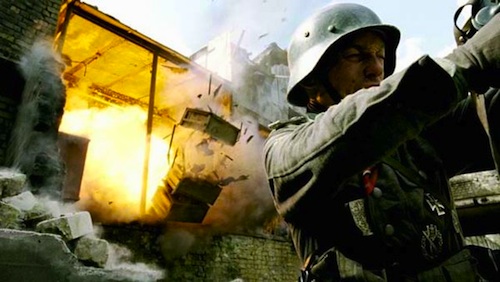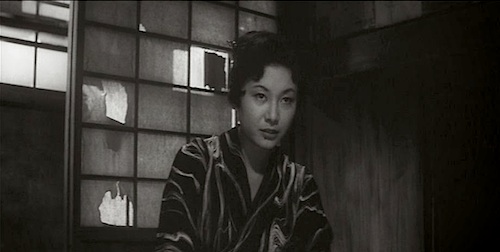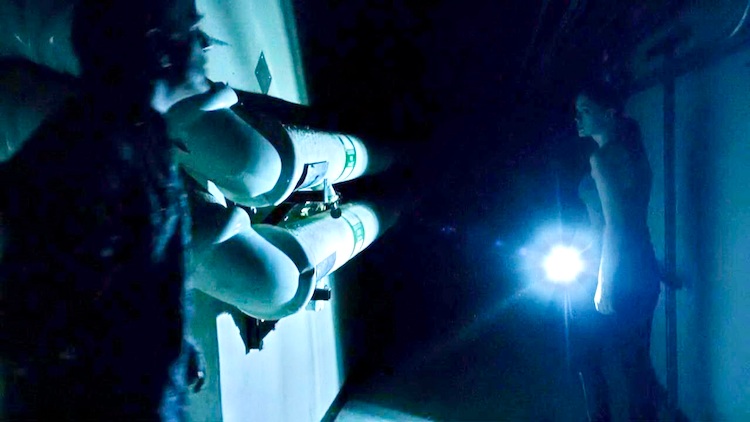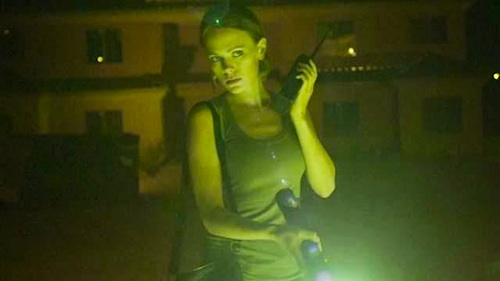By Joe Bendel. They would have been Germany’s best and brightest. Instead, a generation of future leaders was ground-up and consumed by the National Socialist war machine. It was not a war of their making, but they bought in nonetheless. Like the rest of their contemporaries, five friends expect it all to end quickly, so they vow to reunite in Berlin for Christmas. Of course, WWII will turn out to be much more protracted, painful, and futile than anyone bargains for in Philipp Kadelbach & Stefan Kolditz’s Generation War, a popular but controversial German television mini-series, which screened theatrically in its entirety, starting this past Wednesday at Film Forum.
Lt. Wilhelm Winter has already had a taste of war, returning home decorated. His disappointing brother Friedhelm is not cut from the same soldier cloth. Unfortunately, the younger Winter’s skepticism regarding the war will be vindicated in spades. Before they leave for the Eastern Front, both brothers will spend a final evening with their three closest friends.
Charlotte (or “Charlie”) will also soon leave for the east to serve as a Red Cross nurse, but she is ill prepared to face the grisliness of war, even during the optimistic early months. She not so secretly carries of torch for Wilhelm Winter, but has never found the right moment to confess her ardor. Lt. Winter shares her feelings, but refuses to act on them, believing it would be unfair to her should he fall in battle. In contrast, Gretta Müller and Viktor Goldstein are clearly an item, but they try to keep their affair secret outside their small band of friends. After all, Goldstein is Jewish and Mueller is an aspiring torch singer.
Obviously, all five friends are in serious denial regarding the National Socialist’s racial policies, especially Goldstein. Unfortunately, reality will become inescapable. For mercenary reasons, Müller, now known as Greta DelTorres, also takes up with Dorn, a senior SS officer who guides her career as a Reich-approved songstress. He also promises to arrange safe passage for Goldstein out of the country, but that is not how the SS dealt with romantic rivals. Instead, Goldstein heads east as well, under radically different circumstances.
Screened in two separate parts totaling 319 minutes, Generation is a five headed epic that encompasses roughly five years of tumultuous history. Yet, despite all its characters’ regret and longing, it is hardly a romance in the Doctor Zhivago tradition. First and foremost, it is a gritty war movie, emphasizing naturalistic misery over Saving Private Ryan-style spectacle. It certainly makes the Eastern Front look like the colossally bad idea it was. Tellingly, during the first half, each shift in location is identified by its distance from Moscow, while Berlin becomes the reference point for the second half.
Of course, from an American perspective, the Eastern Front is a convenient location, because none of the primary characters ever fires a shot at a Yankee GI. To their credit, director Kolditz and screenwriter Kadelbach (who also wrote the Dresden miniseries, which is worth revisiting in conjunction with Generation) deal forthrightly with National Socialist war crimes. They never take viewers all the way inside a concentration camp, but they spend time in the trains transporting prisoners there. When the Soviets appear, it is rarely flattering. However, the portrayal of the Polish Home Army is sometimes questionable, never showing the extent to which they were targeted by Stalin’s forces.

Regardless, Generation is significant for the extent it engages with the complicity of Germans of diverse social positions in the crimes of the Third Reich (far more so than Dresden). This is considerably closer to a 12 Years a Slave soul search than a whitewash. Terrible things happen during the course of the film for reasons of ideological intolerance and cruelty.
Still, it is also an engaging narrative that balances the circle of friends remarkably well. The five principles completely pull viewers in, convincing even the most resistant to invest in their characters. As Wilhelm Winter (who also serves as narrator), Volker Bruch is arguably the strongest of the ensemble due to the commanding presence and anguished conscience he projects. Tom Shilling nicely plays with and against him as the resentful younger Winter.
Initially, Katharina Schüttler and Miriam Stein seem comparatively light weight as Müller and Nurse Charlie, respectively, but they each have surprisingly powerful moments of disillusionment and emotional defeat throughout part two. Ludwig Trepte slow burns well enough as the naturally withdrawn Goldstein, but Aline Levshin is downright bracing as the Polish fugitive he forms an alliance with.
As befitting a sweeping saga, there are plenty of coincidences and near misses in Generation, but they never feel forced. Throughout, Kadelbach and Kolditz maintain their focus on the war and its dire consequences for the five friends, as well as the wider society. It is a completely involving military drama that trots along briskly. However, Film Forum’s two-for-one admissions for parts one and two can conveniently be applied to different screening dates. Highly recommended, Generation War opens this Wednesday (1/15) in New York.
LFM GRADE: A
Posted on January 18th, 2014 at 12:21pm.





